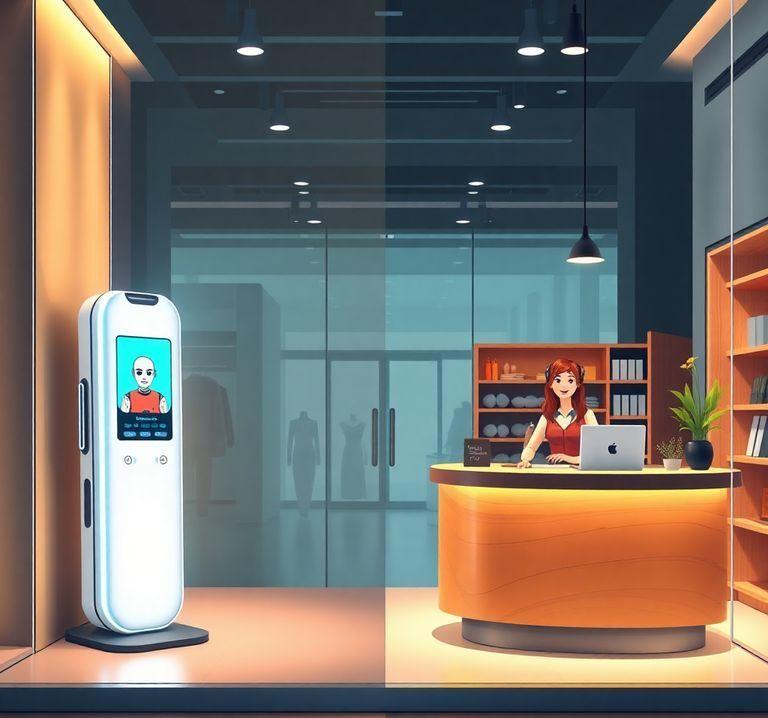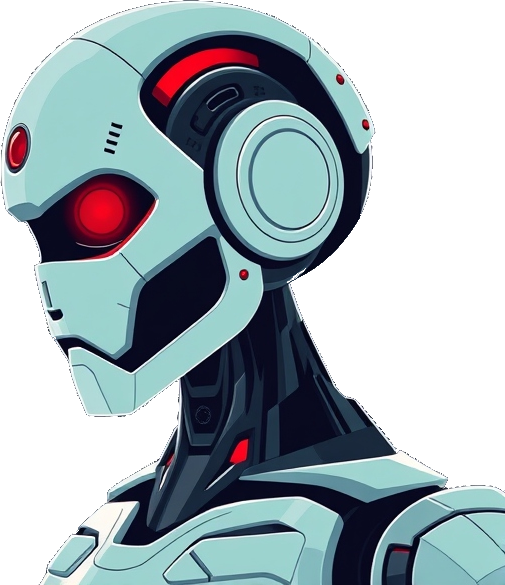Automated Chatbots vs. Human Customer Service in E-commerce: Pros and Cons
10.12.2024 - Engine: Gemini

Automated Chatbots vs. Human Customer Service in E-commerce: Pros and Cons
With the increasing digitization of e-commerce, chatbots have come to play a prominent role in providing customer service. The question arises whether these automated assistants can replace traditional human customer service or whether both approaches have their own strengths and weaknesses. In this blog post, we explore the pros and cons of automated chatbots versus human customer service and discuss when and how both approaches can be used effectively.
Automated Chatbots
Pros:
- 24/7 Availability: Chatbots are available around the clock and can answer customer queries at any time.
- Quick Response Times: They provide instant responses, reducing waiting times for customers.
- Cost-Effectiveness: Chatbots can handle multiple queries simultaneously, lowering customer service costs.
- Easy Implementation: Chatbots can be seamlessly integrated into websites and messaging platforms.
- Repetitive Tasks: They can handle simple and repetitive tasks such as order status queries and refund requests, freeing up human customer service agents for more complex inquiries.
Cons:
- Limited Problem-Solving: Chatbots can only assist within their programmed capabilities and may not be able to handle complex or unexpected customer issues.
- Lack of Empathy: Chatbots cannot provide the same human touch as human customer service agents and may be perceived as impersonal.
- Limitations with Complex Queries: For complex queries that require personalized advice or problem-solving, chatbots may be inadequate.
- Trust Issues: Customers may hesitate to share sensitive information such as payment details with a chatbot.
- Lack of Personalization: Chatbots cannot offer personalized experiences like a human customer service agent can.
Human Customer Service
Pros:
- Personalized Experiences: Human customer service agents can connect with customers on a more personal level and offer tailored solutions to their individual needs.
- Complex Problem-Solving: They can handle complex issues that are beyond the capabilities of chatbots and provide more effective problem resolution.
- Empathy and Understanding: Human customer service agents can show compassion for customers and create a positive customer experience.
- Long-Term Relationships: They can build long-term relationships with customers and foster loyalty through personal interactions.
- Trustworthy: Customers tend to trust human customer service agents more and feel more comfortable sharing sensitive information with them.
Cons:
- Limited Availability: Human customer service agents are not available 24/7 and can lead to waiting times.
- Higher Costs: Human customer service agents are more expensive than chatbots and can increase customer service costs.
- Inefficiency with Simple Queries: For simple and repetitive tasks, human customer service agents can be inefficient.
- Emotional Burden: Human customer service agents can experience emotional distress from dealing with upset customers.
- Lack of Scalability: Scaling human customer service can be challenging as hiring and training new agents takes time and resources.
Effective Implementation
The decision of whether to implement automated chatbots, human customer service, or a combination of both depends on various factors, including:
- Type of Queries: Chatbots are best suited for simple and repetitive queries, while human customer service is suitable for more complex issues.
- Urgency of Queries: When customers need immediate responses, chatbots are a good choice. For less urgent queries, human customer service may be a better option.
- Target Audience Preference: Some customer demographics prefer the efficiency of chatbots, while others value the personal touch of human customer service.
- Available Resources: The costs and availability of resources should be considered when deciding between chatbots and human customer service.
Conclusion
Automated chatbots and human customer service have their own unique advantages and drawbacks. Chatbots offer benefits such as 24/7 availability, quick response times, and cost-effectiveness, while human customer service provides personalization, complex problem-solving, and empathy. By carefully considering the factors discussed in this blog post, businesses can make an informed decision about which approach or combination of approaches will work best for their e-commerce customers.

